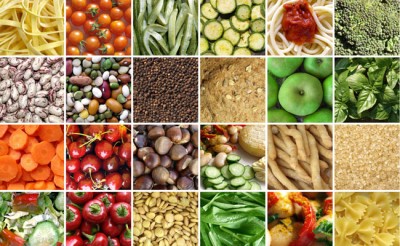
Certification bottleneck stifles India’s organic food exports
Bidhu Bhushan Palo | TheDollarBiz  Despite favourable climatic conditions and a heritage of organic farming, India’s performance in the organic food export sector remains dismal. According to government estimates, the area under organic certification in India stands at around 4.72 million hectare, which is 2.6% of the total agricultural land of around 182 million hectare in the country. India’s organic food exports account for a mere $224 million, which is about 0.35% of the $64 billion worth global organic food market. Demand is strong in both domestic and international markets. According to industry representatives, the organic food market in India is growing at around 15% annually while export growth is almost double at around 30%. States like Sikkim have taken a lead in promotion of organic foods but the sector remains plagued by complicated certification procedures, lack of technology, unavailability of organic pesticides and manure, and lack of processing industries. However, the immense potential to grow in this sector hasn’t gone unnoticed. Recently, A.K. Tripathy, Joint Secretary, Department of Commerce and Industries, revealed at the 4th National Conference on Organic Farming organised by the Associated Chambers of Commerce and Industry of India (ASSOCHAM) that the Ministry of Commerce is planning to exempt organic processed food exports from bans even if the primary produce of that commodity is subjected to some restrictions. He added that a credible certification system will help in this.
Despite favourable climatic conditions and a heritage of organic farming, India’s performance in the organic food export sector remains dismal. According to government estimates, the area under organic certification in India stands at around 4.72 million hectare, which is 2.6% of the total agricultural land of around 182 million hectare in the country. India’s organic food exports account for a mere $224 million, which is about 0.35% of the $64 billion worth global organic food market. Demand is strong in both domestic and international markets. According to industry representatives, the organic food market in India is growing at around 15% annually while export growth is almost double at around 30%. States like Sikkim have taken a lead in promotion of organic foods but the sector remains plagued by complicated certification procedures, lack of technology, unavailability of organic pesticides and manure, and lack of processing industries. However, the immense potential to grow in this sector hasn’t gone unnoticed. Recently, A.K. Tripathy, Joint Secretary, Department of Commerce and Industries, revealed at the 4th National Conference on Organic Farming organised by the Associated Chambers of Commerce and Industry of India (ASSOCHAM) that the Ministry of Commerce is planning to exempt organic processed food exports from bans even if the primary produce of that commodity is subjected to some restrictions. He added that a credible certification system will help in this.
 Krishan Guptaa, MD & Global CEO, Organic India Pvt. Ltd.
Krishan Guptaa, MD & Global CEO, Organic India Pvt. Ltd.But this is the easy way out. First, there is a scope for misuse of the exemption, which will benefit unscrupulous businessmen exporting banned items under the organic food label. Second, the move is unlikely to benefit either the farmer or the consumer because of the certifications required. Krishan Guptaa, MD & Global CEO of the Lucknow-based Organic India Pvt. Ltd., told The Dollar Business, “Cumbersome certification processes only benefit testing labs and third-party certification agents, and the additional costs are passed on to the consumer while farmers continue to get low prices.” It is due to such requirements that organic food has come to be seen as a product for the elite. Isn’t it strange that growers of organic food and other organic products struggle to prove that the produce is healthy when those that use chemicals face no such hassles? Unfortunately, “pure” food (that’s what Guptaa calls organic food) is today seen as something exclusive when it actually should be the endeavour of the governments across the world to provide healthy food to the people and preserve the environment. A change in mindset is required to address the problems faced by the organic food sector, says Guptaa. He adds that it is critical to believe in India and Indian farmers, and make life simple for everyone in the chain with the help of simple polices. At present, Organic India helps associated farmers in the certification process, but Guptaa suggests that certification should be allowed at the producer level. He says, “Organic farming and exports from India will remain below potential unless farmers are allowed to certify the products themselves and entrepreneurs are encouraged to value-add products. Key is to have value addition to products and not focus on bulk exports. This gives many benefits including better prices.” Encouraging value addition will also go a long way in promoting organic food among farmers and bringing private sector involvement. To do this, companies need to evaluate the global demand and produce value-added organic products instead of shipping raw commodities. This has helped Organic India. Today, the company has a turnover of around Rs.200 crore, of which around 60% is from exports. The company’s main export comprises value-added products of Tulsi (Holy Basil) which alone accounts for around 40% of the company’s overall sales which is growing at around 30-40% annually, claims Guptaa.
This article was published on October 11, 2014.





 to success.
to success.